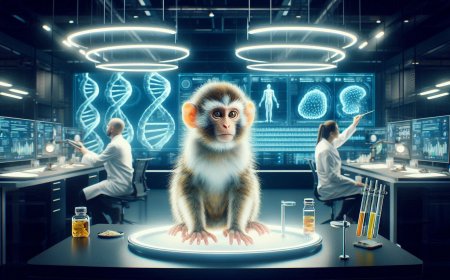The Hidden Symphony: How Your Liver Dances at the Sight and Smell of Food
Explore the fascinating connection between your liver and the sensory experience of food. Discover how the sight and smell of delicious dishes activate this vital organ in a hidden symphony of digestion and health.

Imagine walking down a street, hunger gnawing at your stomach, when suddenly, the irresistible aroma of fresh-baked bread or sizzling bacon wafts through the air. Instantly, your mouth waters, your stomach rumbles, and you feel an overwhelming desire to eat. But what if I told you that this familiar reaction goes far beyond just hunger? Beneath the surface, a hidden metabolic symphony is taking place, and your liver is playing a key role in this silent orchestra—all triggered by nothing more than the sight and smell of food.
Recent research from the Max Planck Institute for Metabolism Research has unveiled a fascinating connection between your senses and your liver, revealing that the mere perception of food can set off a cascade of rapid responses deep within your body. Published in the prestigious journal Science, this study sheds light on how our brains and metabolic systems work in perfect harmony, preparing the body to process food before a single bite has even been taken.
It turns out, this complex dance begins in the brain. When hungry mice were exposed to the sight and smell of food, their brains sent signals to their liver, triggering an astonishingly fast adaptation in the liver’s mitochondria, the tiny powerhouses of the cell responsible for energy production. Within minutes, these mitochondria were readying themselves for sugar metabolism, primed to manage the influx of energy that food would soon deliver.
The real magic, however, lies in the fact that this entire process occurs without the animals eating a single morsel. The liver's mitochondria were already shifting gears simply based on sensory cues. This rapid response was driven by POMC neurons in the brain, specialized nerve cells that react to hunger and food signals, creating a direct link between what the mice sensed and what their liver was preparing to do.
At the heart of this transformation is a process called phosphorylation, a chemical modification crucial for regulating proteins within cells. This mechanism increases the liver’s sensitivity to insulin, the hormone responsible for controlling blood sugar levels. Essentially, the liver was getting ready to handle the sugar that wasn’t even there yet—an extraordinary display of the body's efficiency and foresight.
Sinika Henschke, the study’s lead author, shared the significance of these findings: “We already knew that our bodies prepare for food intake by producing saliva and digestive acids,” she said. “But now, we’ve seen how the liver, too, prepares rapidly through changes in the mitochondria.” The implications of this discovery are groundbreaking, especially for people living with type 2 diabetes, a condition marked by diminished insulin sensitivity. The researchers’ work suggests that by better understanding how the liver adapts to the mere perception of food, we might unlock new ways to enhance insulin sensitivity and manage blood sugar more effectively.
Jens Brüning, head of the study, highlighted the potential impact: “Our study shows how closely connected sensory experiences of food are to adaptive processes in the mitochondria and insulin sensitivity. This understanding is crucial, particularly because insulin sensitivity often diminishes in type 2 diabetes.”
The implications are profound. If our liver can prepare itself so quickly based solely on sensory input, what does this mean for future treatments? Could we find ways to harness the body's natural response to food cues and improve insulin sensitivity in people with diabetes? The answers could open up entirely new avenues for managing and even preventing the progression of metabolic diseases.
For now, this research serves as a reminder of just how intricately connected our bodies are. The next time you catch a whiff of your favorite meal or see something mouthwatering, know that your body is doing much more than simply reminding you that you're hungry. Your liver is quietly responding, getting ready to fuel your body’s needs—even before the first bite.
In this hidden dance between your senses, brain, and liver, science reveals that you’re not just reacting to food—you’re preparing for it in ways you never knew existed. And with each discovery like this one, the future of metabolic health becomes a little clearer, offering hope for millions who may one day benefit from this knowledge.
What's Your Reaction?






































































































